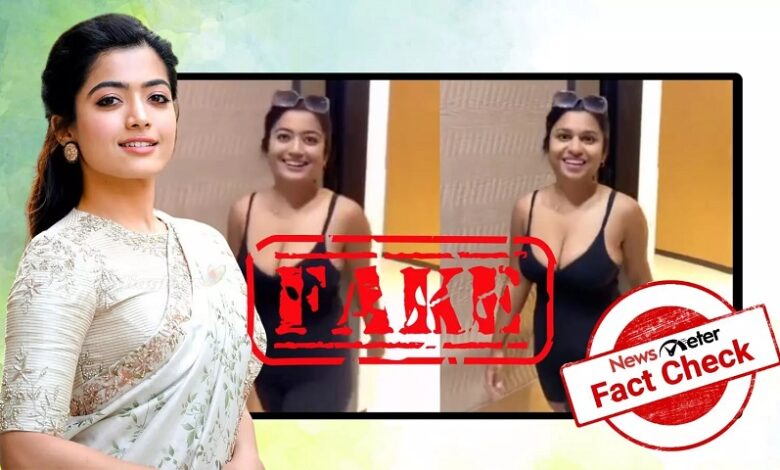AI-Generated Deepfake of Bollywood Actor Sparks Calls for Regulation in India

By Agnibeena Ghosh
In a world increasingly shaped by the advances of artificial intelligence (AI), concerns surrounding the ethical and regulatory aspects of this technology are reaching new heights. India, a nation renowned for its vibrant film industry, Bollywood, has recently found itself in the midst of an AI-generated deepfake controversy. A manipulated video purportedly showing a popular Bollywood actor in a compromising position has sent shockwaves through the country, reigniting discussions about the urgent need for AI regulation in the nation.
The victim of this distressing AI-manipulated video is RashmikaMandanna, a beloved Bollywood actor with a massive following of 4.7 million users on the social media platform X, previously known as Twitter. Mandanna was shaken when she discovered that a fabricated video, superimposing her face onto another woman’s body, was rapidly disseminating across various social media channels. This AI-generated deepfake immediately triggered a storm of emotions and reactions, not only from her fanbase but also from the government and fellow Bollywood celebrities.
Mandanna’s poignant response to the disturbing deepfake video highlights the emotional toll that such manipulations can inflict on individuals, particularly public figures. She expressed that she was “really hurt” by the incident, emphasizing the gravity of the situation. This incident shines a spotlight on the concerning implications of AI-generated content, which have the potential to damage reputations, fuel misinformation, and disrupt public discourse in a digitally connected society.
This deepfake controversy brings forth several critical questions and concerns about AI’s unregulated usage, its potential consequences, and the imperative need for comprehensive guidelines to govern its deployment in various contexts, including the entertainment industry, politics, and beyond.
The manipulated video that targeted RashmikaMandanna showcased the frightening capabilities of AI technology, particularly deepfake algorithms. Deepfakes leverage AI and machine learning to create highly convincing forged content, such as videos and images, where a person’s likeness can be seamlessly grafted onto another individual’s body, effectively making it appear as if the individual in question is engaging in activities they never participated in.
In this case, the deepfake video depicted RashmikaMandanna wearing a low-cut top, which she had not worn in reality. The technology used in creating such content has become remarkably sophisticated, making it increasingly difficult for the untrained eye to distinguish between authentic and manipulated material. The consequences of such deceptions can be devastating, ranging from damage to one’s reputation and career to personal distress and harm.
While this particular incident targeted a Bollywood actor, the potential applications of deepfake technology extend far beyond the realm of entertainment. It can impact politics, journalism, and many other facets of public life. The urgency to address this issue and institute effective regulation is more significant than ever before.
News Mania Desk / Agnibeena Ghosh 9th November 2023






